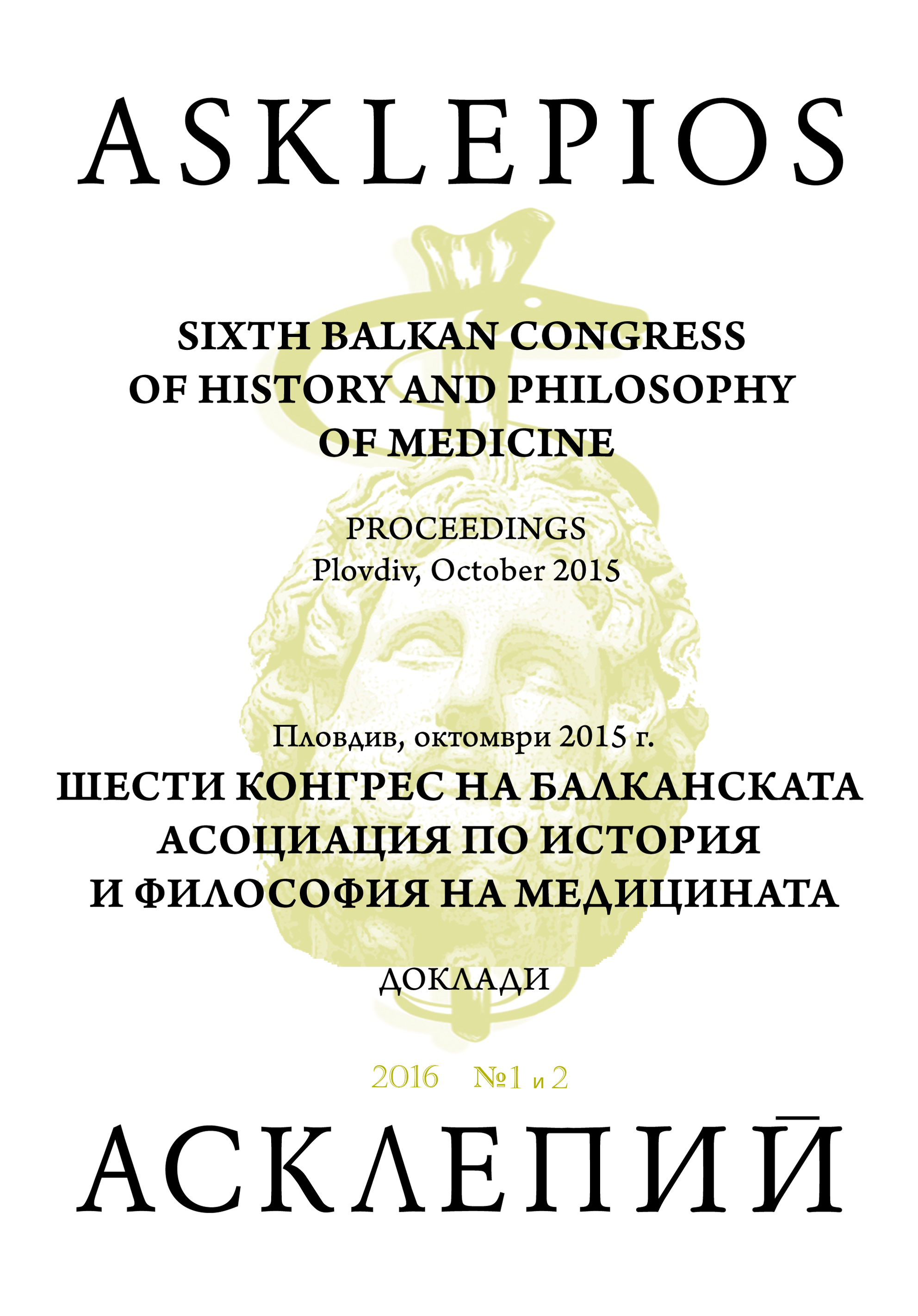Еволюция на практиките за кърмене на децата през вековете
Evolution of breastfeeding practices throughout the centuries
Author(s): N. Usheva, Albena Kerekovska, Klara Dokova, Nevyana FeschievaSubject(s): History, Social Sciences, Cultural history, Gender history, Health and medicine and law
Published by: Балканска асоциация по история и философия на медицината (БАИФМ)
Keywords: evolution; wet nurses; feeding
Summary/Abstract: In the course of humane volution, breastfeeding, though in herent and universal for the class Mammalia, to which the current Homo sapiens sapiensbelongs, has changed its position in human life and comprehension. Social, economic and technological development initiated at about 10000 BC has offered alternative methods to maternal breastfeeding with their popularity varying through different historical periods, as well as with different geographic locations. Breastfeeding practices exhibit strong influence by a variety of factors: the difference in mortality rates between breastfed and artificially fed infants; early separation of mother and infant as a result of mothers working outside of home;urbanization limiting the contacts between families generations and thus hindering the transfer of the practices between them; medical aid being accessible for larger social groups increases the possibility for the medical professionals to influence breastfeeding practices; improved formula foods and their aggressive advertising campaign aimed at the society and physicians. Anthropological and archaeological studies have revealed that among primitive people, the breastfeeding duration was between 2 and 6 years. There exists also evidence about wet-nursing or animal breastfeeding of human infants, infant feeding with appropriately prepared hand-fed foods, postponing of breastfeeding by a period from one day to three weeks postpartum because of the belief that colostrum was harmful, as well as historical periods in which maternal breastfeeding was totally rejected. The low prevalence rates and the unsuccessful modern breastfeeding practices necessitate involvement from the highest political level (UN, WHO, etc.) in order to support human health promotion.
Journal: Асклепий. Международно списание по история и философия на медицината
- Issue Year: XI/2016
- Issue No: 01+02
- Page Range: 358-364
- Page Count: 7
- Language: Bulgarian
- Content File-PDF

